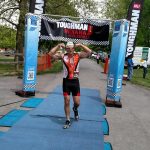building mental toughness
-

How to Crush The Transitions in Life
.
How to Crush the Transitions in Life If we use the bathroom 10 minutes a day, we will have spent over 6 months of our lives in the…
-

Avoid This “Why” to Build Mental Toughness
.
Avoid This “Why” to Build Mental Toughness I was a good athlete when I was young. But I changed. I’m not sure exactly when it happened, maybe I lost…
-

(VIDEO) What Blocks Us From Mental Toughness
.
What Blocks us from Mental Toughness One of the most difficult things in life is to let go of old ideas and ways of thinking. The sexy term nowadays…
-

Two Specific Mental Health Tips for Success
.
Two Specific Mental Health Tips When you HEAR mental health, do you automatically think Mental Illness or depression? Mental Health = Health = Mental Strength If you look up…
-

(Video) Mental Toughness is built off of the field?
.
Mental Toughness is built off of the field? Not only does our best change as we get better, but Mental Toughness also becomes more about what takes place off…
-

Are We Testing OR Training Mental Toughness?
.
Are We Testing Mental Toughness OR Training Mental Toughness? On a long run , I passed two people and asked them for what race they were training. She said…
-

{Infographic} 5 step Pformula for greatness
.
Thanks to Coach Martin Rooney and Training for Warriors for the Pformula for greatness! It’s Not a typo, sound it out- Pf Pf Pformula. Just see if you can…
-

Sit down here if you want to win.
.
People will pay top-dollar to sit there while others will do everything they can to actually avoid sitting there. When people “get-to” pay to sit there, there are often few…
-
The Ed Sheeran Technique of Building Mental Toughness
.
The Ed Sheeran Technique of Building Mental Toughness No, this isn’t Ed Sheeran, More on his technique for building mental toughness in a minute. This is Ogi Ogas ,…